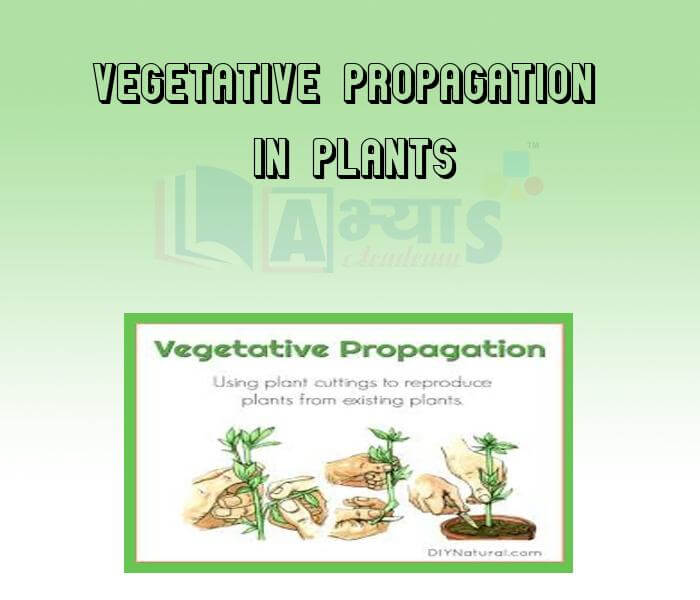Vegetative Propagation in Plants










Vegetative Propagation in Plants
In which, a cell, tissue or part of an organ of a plant develops into a new organism. Vegetative parts such as root, stem and leaf can be used to produce new plants. It is known as vegetative reproduction.
Natural methods : They do with the help of stems, roots and leaves.
Roots: Tuberous roots of dahlia, sweet potato can be set for multiplication. These roots have food stored in them.
Stems: Vegetative propagation through stems is of the following types:
Which of the following are correct ? (a) Rhizomes have buds from which outgrowths are produced which give rise to new plants. E.g. Srawberry, mint . (b) Bulbs are very short underground stems in thickened fleshly bulb scales. Scales serve as sites of food storage. (c) Tubers have buds in the eyes, which give rise to new plants e.g. potato | |||
| Right Option : B | |||
| View Explanation | |||
Which of the following are correct ? (a) Vegetative parts such as root, stem and leaf can be used to produce new plants. It is known as vegetative reproduction. (b) Tuberous roots of dahlia, sweet potato can be set for multiplication. These roots have food stored in them. (c) Vegetative propagation through stems is of the plants such as grass have horizontal stems growing parallel to the ground, almost touching it. | |||
| Right Option : D | |||
| View Explanation | |||
Edible part of potato is ________________ | |||
| Right Option : B | |||
| View Explanation | |||
Students / Parents Reviews [10]
I have spent a wonderful time in Abhyas academy. It has made my reasoning more apt, English more stronger and Maths an interesting subject for me. It has given me a habbit of self studying

Yatharthi Sharma
10thOne of the best institutes to develope a child interest in studies.Provides SST and English knowledge also unlike other institutes. Teachers are co operative and friendly online tests andPPT develope practical knowledge also.

Aman Kumar Shrivastava
10thIt has a great methodology. Students here can get analysis to their test quickly.We can learn easily through PPTs and the testing methods are good. We know that where we have to practice

Barkha Arora
10thMy experience was very good with Abhyas academy. I am studying here from 6th class and I am satisfied by its results in my life. I improved a lot here ahead of school syllabus.

Ayan Ghosh
8thIt was a good experience with Abhyas Academy. I even faced problems in starting but slowly and steadily overcomed. Especially reasoning classes helped me a lot.

Cheshta
10thAbout Abhyas metholodology the teachers are very nice and hardworking toward students.The Centre Head Mrs Anu Sethi is also a brilliant teacher.Abhyas has taught me how to overcome problems and has always taken my doubts and suppoeted me.

Shreya Shrivastava
8thAbhyas Methodology is very good. It is based on according to student and each child manages accordingly to its properly. Methodology has improved the abilities of students to shine them in future.

Manish Kumar
10thMy experience with Abhyas academy is very good. I did not think that my every subject coming here will be so strong. The main thing is that the online tests had made me learn here more things.

Hiya Gupta
8thIt was good as the experience because as we had come here we had been improved in a such envirnment created here.Extra is taught which is beneficial for future.

Eshan Arora
8thA marvelous experience with Abhyas. I am glad to share that my ward has achieved more than enough at the Ambala ABHYAS centre. Years have passed on and more and more he has gained. May the centre flourish and develop day by day by the grace of God.
